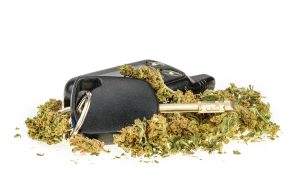This article By Beth Greenfield in Fortune Magazine highlights the danger of driving high on marijuana. The results of this article are highlighted so that employers can be made aware of the danger of having employees drive vehicles, any vehicle, on the road. You are exposing yourself to catastrophic lawsuits if you do not take reasonable attempts to keep employees high on marijuana from driving your vehicles. Everyone knows that it’s dangerous to drive drunk, but the public discourse around driving stoned is a bit fuzzier.
As cannabis transitions to mainstream acceptance in the U.S., the spotlight has often been on the benefits of legalization, and potential health upsides. What isn’t discussed as much is what happens when people smoke up and get behind the wheel—with catastrophic consequences.
The National Transportation Safety Board (NTSB) issued a safety alert about the dangers of driving while stoned last month, after it concluded an investigation that found cannabis played a role in a 2022 car crash that killed six Oklahoma high school students.
“We found that there was widespread misconception about the impairing effects of cannabis,” NTSB Office of Highway Safety director Robert Molloy tells Fortune. “We recognized that teenagers are especially vulnerable to the risks associated with marijuana-impaired driving due to their limited driving experience… I think we also do a poor job of talking about the effects of marijuana on driving.”
Several studies show that it’s unsafe to drive while high, revealing that cannabis significantly affects driver reaction time, decision making, and coordination. And experts say that while messaging around drunk driving has been robust, the infrastructure and education around stoned driving still has a long way to go.
The most comprehensive study ever done on driving while high leaves little room for doubt: Marijuana consumption makes people worse drivers.
For a 2021 paper published in the Frontiers in Psychiatry journal, researchers came up with a representative dose of cannabis, then asked participants to complete a series of complex simulated driving tests.
“We saw all sorts of different errors,” lead researcher Godfrey Pearlson, Yale University professor of psychiatry and neuroscience, and author of The Science of Weed, tells Fortune. “But in general, people’s reaction time is a lot slower—and significantly slower. And when it comes to the more complex decisions, they come much closer to being involved in an accident.”
Other studies have found that marijuana can also impair judgment of distance as well as coordination, according to the National Highway Traffic Safety Administration (NHTSA), both of which are essential behind-the-wheel skills.
Why the persistent belief that driving on weed is safe?
Some of the reluctance to talk about the dangers of driving while stoned may come from the backlash against how the U.S. has traditionally talked about weed in general, according to Pearlson.
Pearlson says. “So because of anti-drug propaganda being obviously false, people have tended to be skeptical about what they’re told about cannabis and believe that it’s therefore harmless.”
Pearlson stresses, the discrepancy between drunk and stoned driving doesn’t negate how dangerous it is to drive while high. “It’s just not true that cannabis-impaired driving is therefore harmless,” he says. “It’s just less impairing on typical doses.”
Cannabis is now legal in 24 states for recreational use, and in 38 states for medical use. But experts say that efforts to curtail driving under the influence of marijuana through education and enforcement have not kept up with the quickly shifting legalization landscape in the U.S.
A line from Pearlson’s 2021 study reads: “The authors believe that the legal cart is currently significantly ahead of the scientific horse.”
James P. Randisi, President of Randisi & Associates, Inc., has been helping employers protect their clients, workforce and reputation through implementation of employment screening and drug testing programs since 1999. This post does not constitute legal advice. Randisi & Associates, Inc. is not a law firm. Always contact competent employment legal counsel. To learn more about the rights of employees who test positive for marijuana, Mr. Randisi can be contacted by phone at 410.494.0232 or Email: info@randisiandassociates.com or the website at randisi



